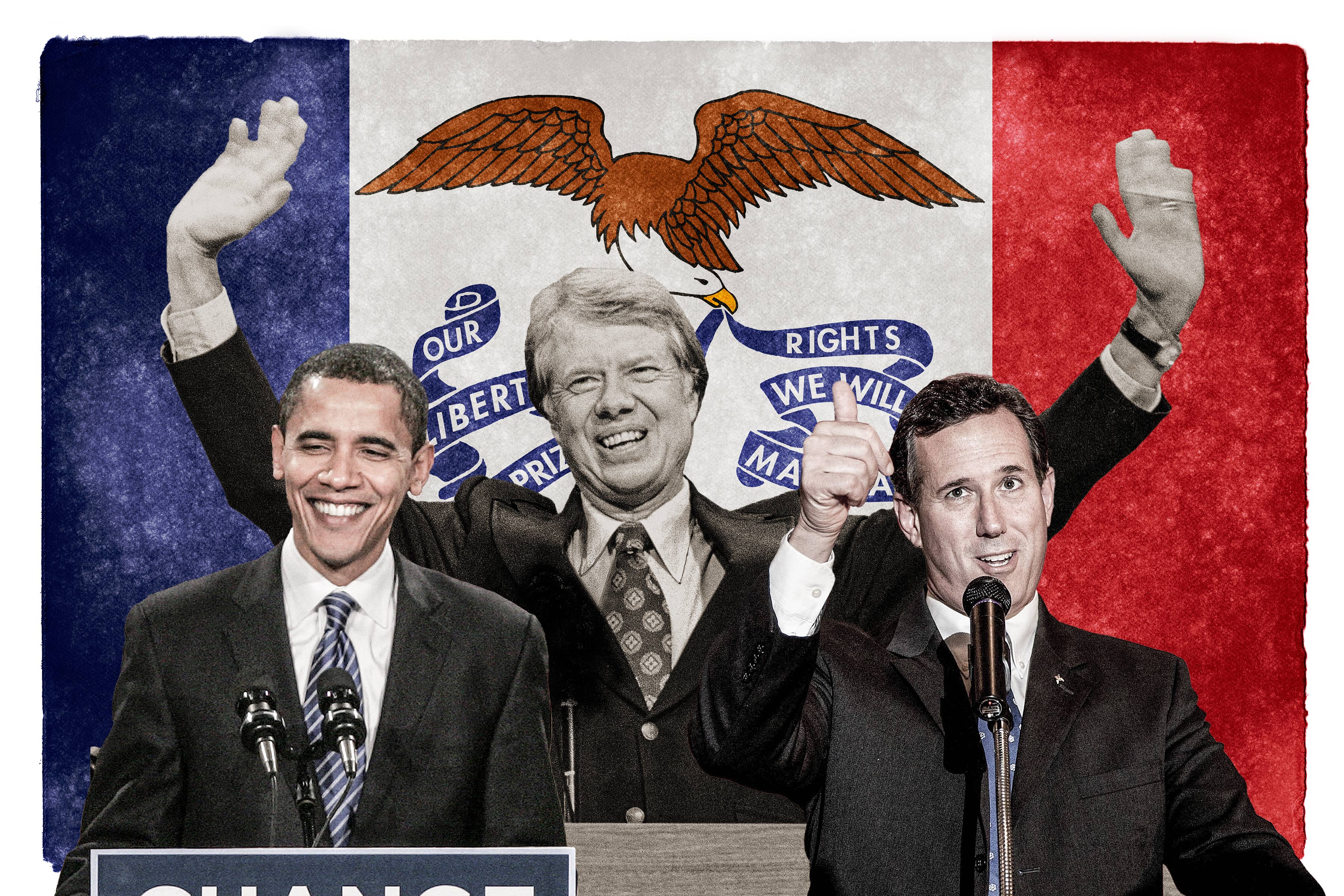Victory in Iowa doesn’t guarantee a nomination at the party convention, but it can turn unknowns into stars.
Simultaneously, it can signal the end of once-promising campaigns.

Victory in Iowa doesn’t guarantee a nomination at the party convention, but it can turn unknowns into stars.
Simultaneously, it can signal the end of once-promising campaigns.